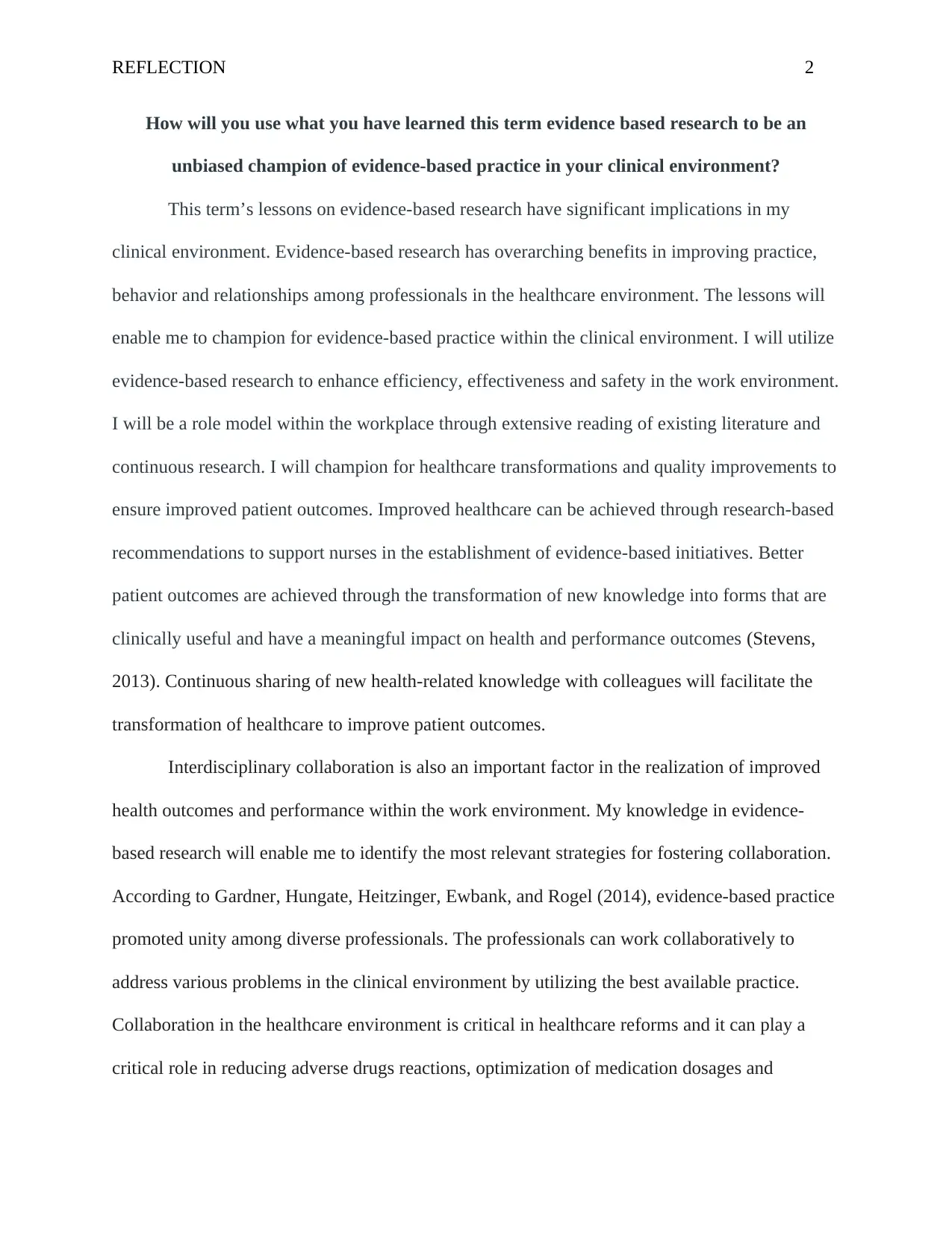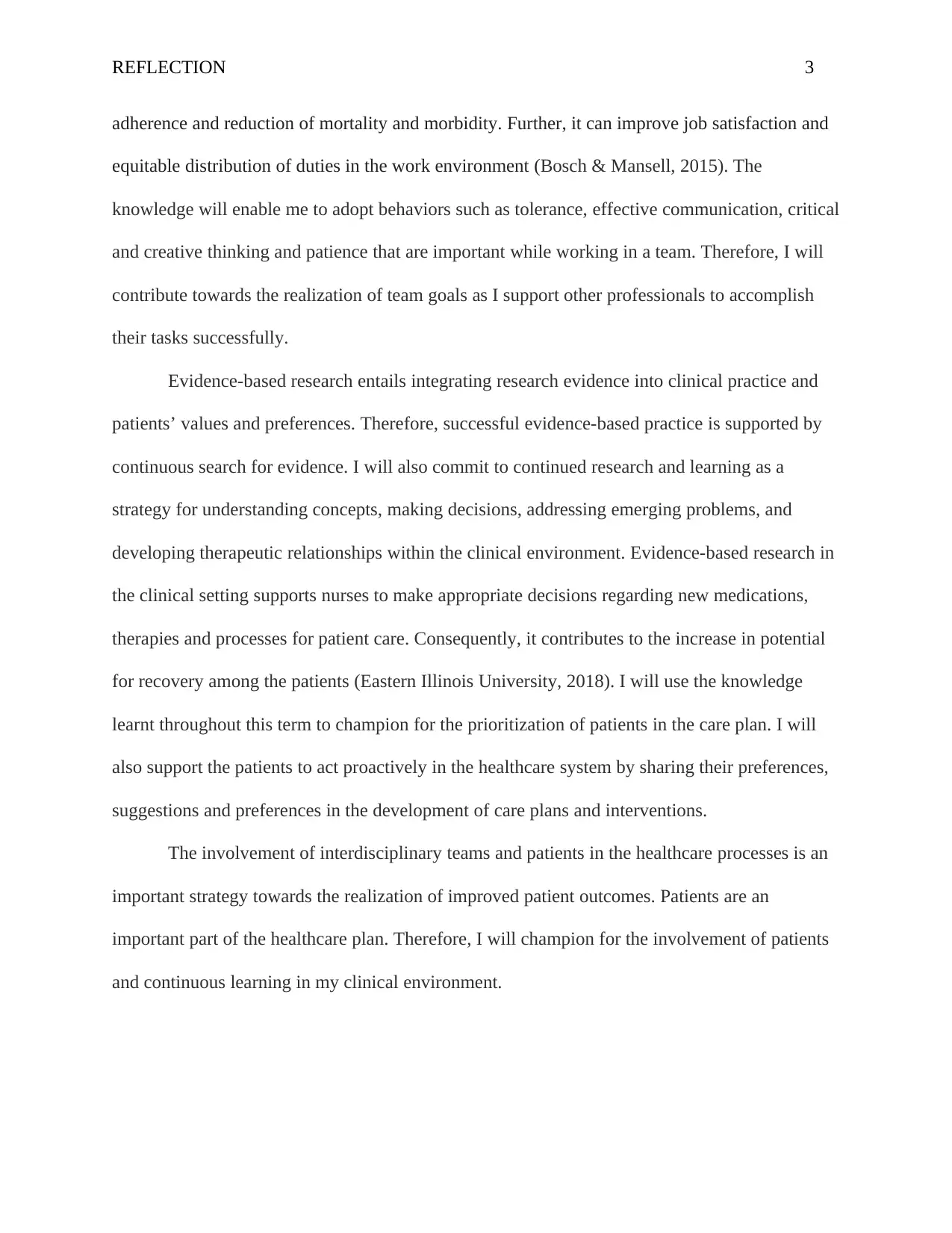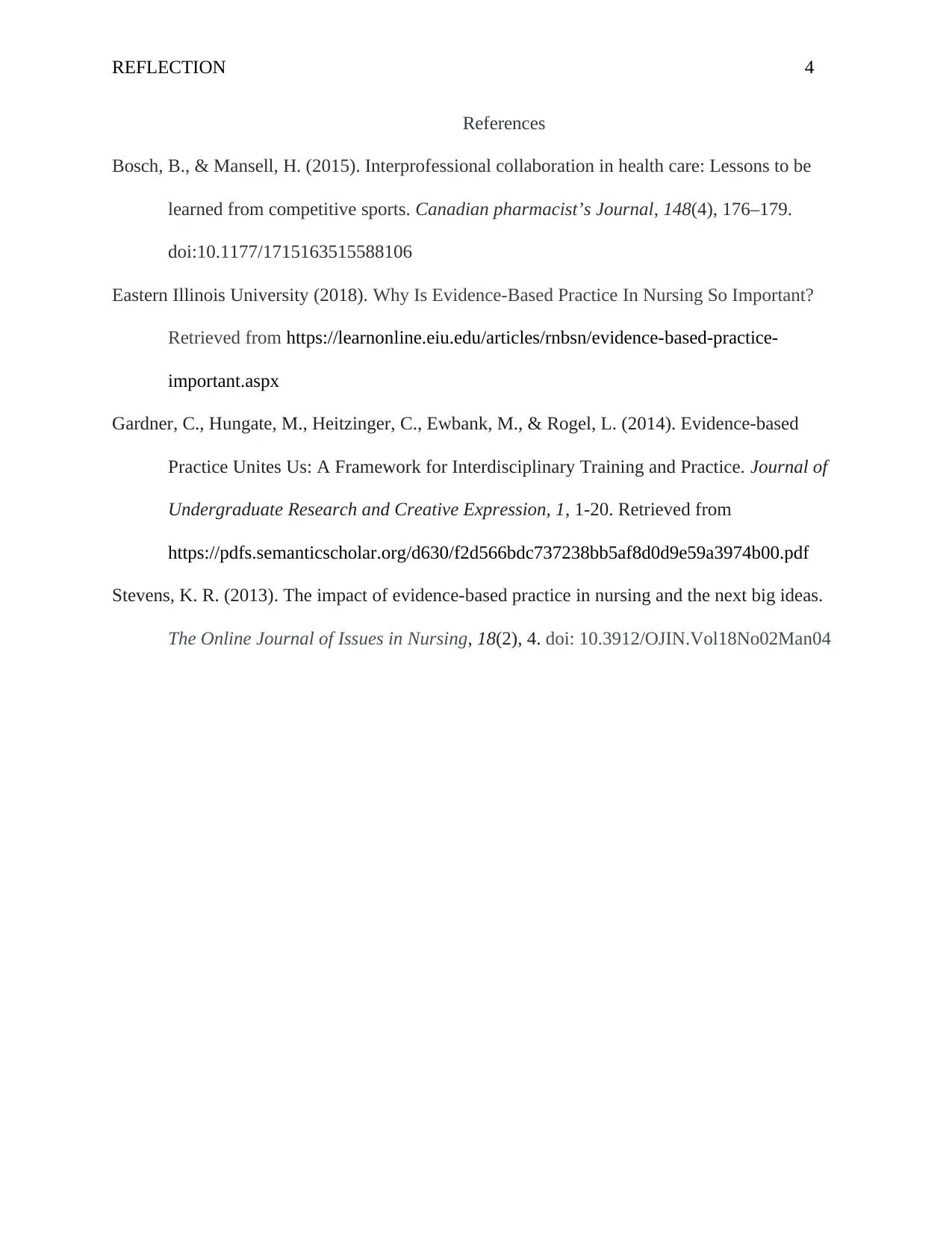Reflection: Applying Evidence-Based Research in Clinical Environment
VerifiedAdded on 2022/09/08
|4
|765
|18
Journal and Reflective Writing
AI Summary
This reflective assignment explores the application of evidence-based research in a clinical environment. The author discusses the benefits of evidence-based practice, including improved efficiency, effectiveness, and safety, and the importance of continuous research and learning. The reflection emphasizes the role of the author as a champion for evidence-based practice, promoting healthcare transformations and quality improvements to enhance patient outcomes. The author highlights the significance of interdisciplinary collaboration, referencing studies that support the unity and collaboration among professionals to address issues in the clinical environment. The author intends to utilize the knowledge gained to foster team goals, support other professionals, and prioritize patient involvement in care plans. The reflection concludes by emphasizing the importance of integrating research evidence into clinical practice and continuous learning for making informed decisions and developing therapeutic relationships within the clinical environment, including patient preferences in care plans.
1 out of 4











![[object Object]](/_next/static/media/star-bottom.7253800d.svg)